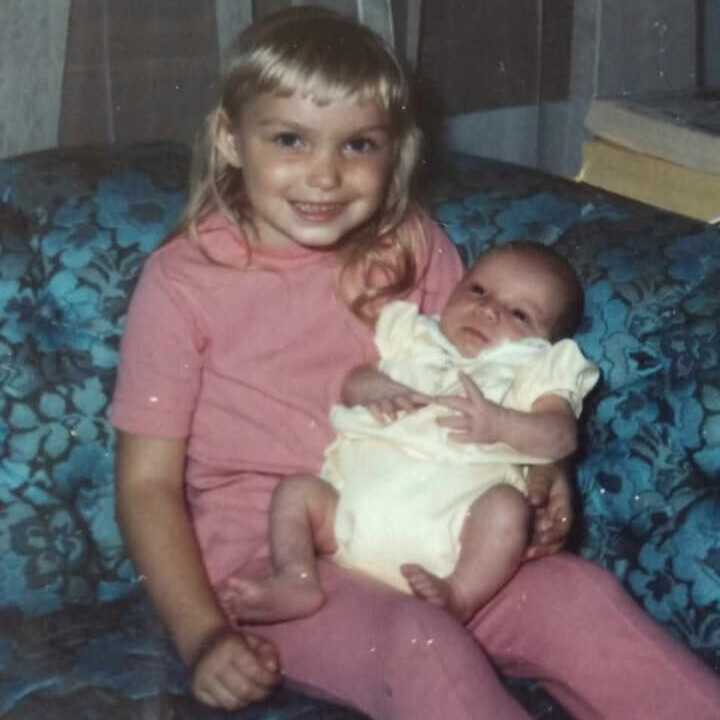
by Mary Harper
It was the summer of 2002, a week after my daughter’s 8th birthday. The weather was hot and she was tired. That was nothing unusual. She had just ended the school term and had a weekend birthday party—enough to tire any 8-year-old!
She complained of feeling sick and generally yucky in the morning, and moved from her bed to the sofa with her duvet to watch cartoons. When I took her temperature and saw it was high, out came the acetaminophen, which she took happily. By lunch time, her temperature had not come down.
I called our wonderful doctor. He told me to continue the medication; he would try to get out to see her later in the day. Midafternoon, when she was due for her next dose, she suddenly got really nasty. She snapped that she wouldn’t take it, seeming like a different child. My daughter was the easiest going, most capable, and kindest little girl. Her mood change was really odd.
That’s when I noticed a faint rash on her tummy. It looked like a heat rash, which wouldn’t be unusual in the summer heat. I’m ashamed to say meningitis never crossed my mind, so I didn’t do the glass test (a test where you press the side of a clear glass against a rash; if the rash does not fade or stops fading under pressure it’s a medical emergency). But her change in personality told me something really wasn’t right.
I called the doctor back. I told him about the acetaminophen and the rash.
He was there within 20 minutes.
Abruptly, we were on our way to the hospital
He examined her and immediately told me to pack a little bag as she was going to the hospital. I went into automatic mode. Up the stairs, packed a bag, and organized care for my elder daughter. I overheard the doctor on the phone to the hospital. I heard “suspected meningitis rash” and felt like I’d had a sledgehammer to my gut.
Minutes later, an ambulance arrived. Two seemingly enormous paramedics went up to her room. I think they gave her a shot. She looked very tiny, and I felt very tiny. We were blue lighted to the hospital.
Though I can remember every detail, it felt like a dream. Like I was watching from outside. My daughter was taken to a room on her own with drips in her arms. By now, the rash was covering her whole body. I was terrified, and I still feel that terror now when I remember that moment.
I had to leave the room, but I remember looking through the little glass panel and seeing my tiny daughter in a far too big bed in a far too big room.
That’s when I crumpled.
They took blood and sent it to Manchester for testing, but they told me they knew what it was. Meningococcal septicemia.
I don’t think I really understood how serious that diagnosis was, having only seen meningitis in the news. But later I found out that some people lose limbs and suffer permanent damage when they have it. Everyone who’d had contact with my daughter had to take antibiotics to keep it contained.
I don’t remember much more of that night. Maybe I’ve blocked it out. I stayed by her side every moment. Everyone was working with serious urgency, and while I certainly wasn’t pushed to the side, I felt it was out of my hands. By the grace of God she went.
My daughter’s experience changed the course of her life
A couple of days later, my daughter was sitting up in bed, looking a bit washed out, but smiling again. We spent a week in hospital. During that time, she had scans, bloods taken, medication, and prods and pokes. She never complained once.
When we left the hospital, she told me “Mummy, I want to be a doctor when I grow up.”
That was over 20 years ago. Today, my daughter is a doctor—a surgeon no less. She followed her dreams and is now saving lives. But it still gives me nightmares that she might not have survived the experience that inspired her career.
At the time my daughter became ill, it was harder to prevent meningitis. My kids had every vaccination available to them. I worked with autistic children and hated the doubt Andrew Wakefield spread to their parents. Today, there are new vaccines that weren’t around 20 years ago. These vaccines can help prevent meningitis caused by viruses, as well as the MenACWY and MenB vaccines which prevent bacterial meningitis.
My message to everyone is to get vaccinated. Trust the science. Trust your doctors. They saved my daughter’s life when she got sick with meningitis. Why not trust them to prevent it?
Mary Harper is an English teacher, animal rescuer, and mom to four successful daughters. Her story, like all others on this blog, was a voluntary submission. If you want to help make a difference, submit your own post by emailing us through our contact form. We depend on real people like you sharing experience to protect others from misinformation.



